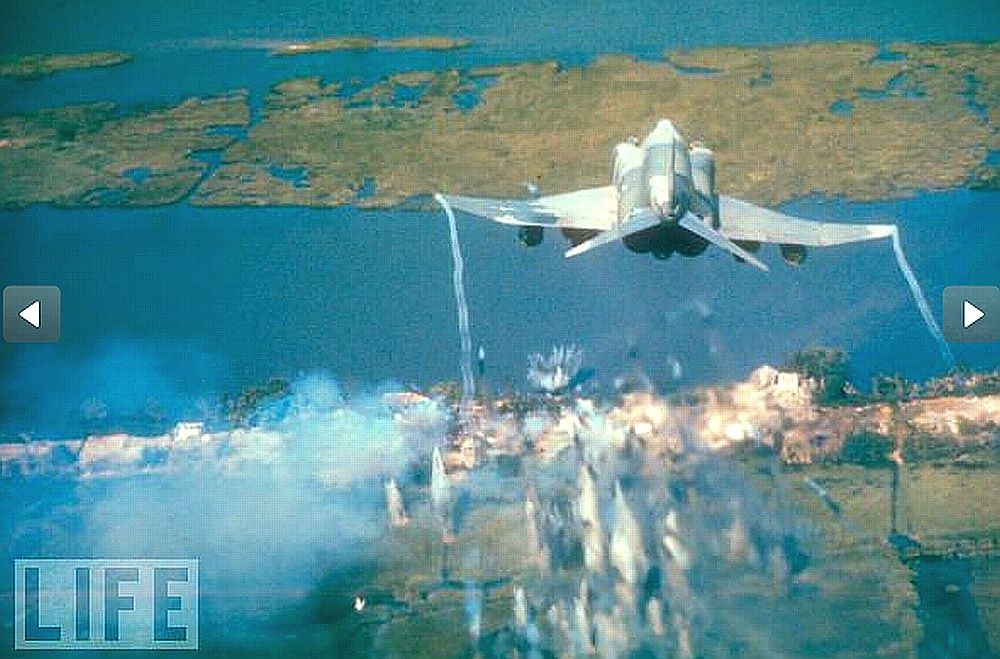A Helmeted U.S. Helicopter Crewchief, holding carbine, watches ground movements of Vietnamese troops from above during a strike against Viet Cong Guerrillas in the Mekong Delta Area, January 2, 1963. The communist Viet Cong claimed victory in the continuing struggle in Vietnam after they shot down five U.S. helicopters. An American officer was killed and three other American servicemen were injured in the action.





























































































